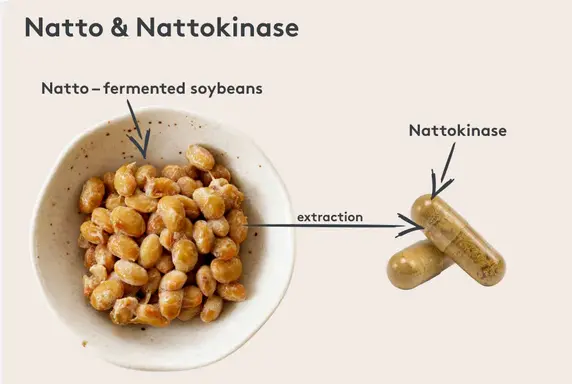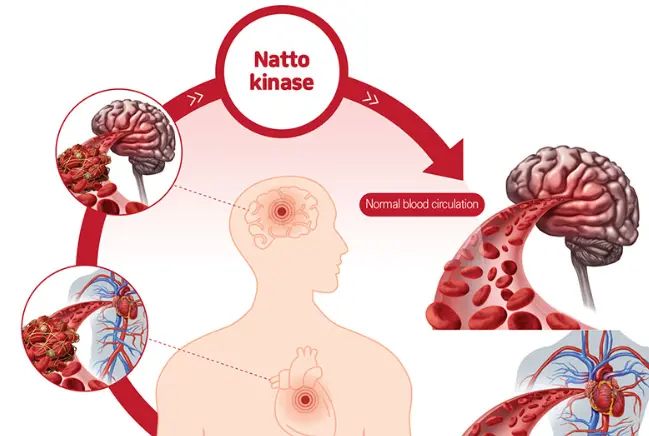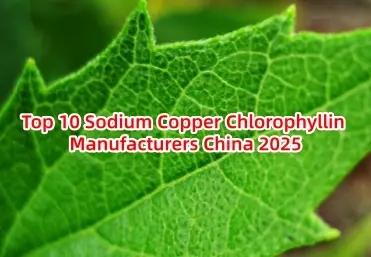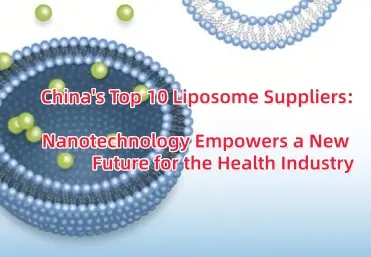Is nattokinase an effective alternative treatment to statin?
1.What is nattokinase?
Nattokinase is a natural enzyme in natto, a Japanese soy-based food. The enzyme is produced during natto’s fermentation process by a specific bacterium called Bacillus subtilis.
Natto’s health benefits — and its distinct taste and smell — are thanks to this unique enzyme. When soybeans go through fermentation, the bacteria used activates nattokinase and gives the food its cheese-like flavor and a range of scientifically-backed health benefits.
2. Nattokinase health benefits
Supports Heart Health
There are many ways natto supports heart health. For one, the fiber and polyunsaturated fat in natto can help reduce LDL cholesterol levels—the “bad” kind of cholesterol. Having high cholesterol is a risk factor for heart disease, so being mindful of cholesterol levels is important for your overall heart health.
Research has found that natto consumption is linked with a reduced risk for heart disease. This may be in part due to nattokinase—an enzyme produced through the fermentation of natto. Nattokinase has been shown to help lower blood pressure, reduce blood lipid levels, prevent plaque formation in the arteries, and act as a blood thinner. These are all qualities that support cardiovascular health.

High blood pressure increases the risk of heart attack, stroke, heart failure, and more if left uncontrolled over time. If you have high blood pressure, natto may be a food worth adding to your diet. One study that included 79 North American participants with hypertension found that consuming nattokinase improved the participants’ blood pressure. However, this was just one study and it had a relatively small sample size, so more robust studies are needed to confirm natto’s benefits on blood pressure. Natto also contains several nutrients important for blood pressure management. These include calcium, potassium, magnesium, fiber, and protein—all nutrients encouraged in the Dietary Approaches to Stop Hypertension (DASH) eating plan. Plus, it’s a low-sodium food—another important nutrition consideration for blood pressure management.
Eating natto can help support gastrointestinal health as it's a high-fiber, fermented food. Fiber is a key nutrient for gut health. Fiber helps promote gut motility, a healthy gut microbiome, and the health of your colon. Fermented foods have been shown to have a positive impact on the health of the gut microbiome, or the diverse spread of bacteria that live in the gastrointestinal tract. Recent research has found evidence that having a healthy gut microbiome can improve your mental and physical health, and help prevent or treat many metabolic disorders. The bacteria Bacillus subtilis used to ferment natto acts as a probiotic—live microorganisms that can help support a healthy microbiome.Research has found that Bacillus strains may exert beneficial effects on the gut microbiome and help counter inflammation in the gut. However, many of these studies have been done on animals or in test tubes, so more studies on humans are needed to further explore these benefits.
Natto may also play a role in reducing inflammation. Studies have found that soy isoflavones, which are phytoestrogens found naturally in soybeans, may help reduce inflammation, particularly when it's related to menopause. Studies have also found that soy protein supplementation has anti-inflammatory effects by reducing circulating levels of inflammatory cytokines. While these studies didn’t evaluate natto specifically, the nutrients studied are present in natto. More natto-specific research is needed to confirm these benefits. Also, lunasin—a peptide found naturally in soybeans—has been shown to inhibit pro-inflammatory cytokines like TNF-α and IL-6. However, most of the studies on lunasin’s benefits on inflammation have been conducted in vitro or in animal models, so human studies are needed to verify these potential benefits.

Nattokinase, a fibrinolytic enzyme derived from fermented soybeans, has gained attention for its potential cardiovascular benefits. Statins, commonly prescribed to lower cholesterol levels, are a cornerstone in cardiovascular disease prevention.
It's important to compare their functions and mechanisms of action. Statins work by inhibiting HMG-CoA reductase, an enzyme involved in cholesterol production in the liver, which ultimately lowers blood cholesterol levels, particularly LDL cholesterol. By reducing cholesterol levels, statins reduce the risk of heart attack, stroke, and other cardiovascular issues.
On the other hand, nattokinase primarily helps to break down fibrin, a protein involved in blood clotting. Its fibrinolytic activity improves blood circulation by preventing clot formation and helping to dissolve existing clots. This can reduce the risk of thrombotic events, such as deep vein thrombosis (DVT) or stroke, which are often associated with high cholesterol or poor circulation.
While both nattokinase and statins can support cardiovascular health, they function in different ways. Nattokinase does not directly address cholesterol levels, which is one of the primary factors in the development of atherosclerosis and heart disease. Statins, on the other hand, are more targeted for this purpose. Therefore, nattokinase cannot fully replace statins in managing high cholesterol or preventing heart disease caused by elevated lipid levels.
Contact us
References
1.Belcaro G. "A Clinical Comparison of Pycnogenol, Antistax, and Stocking in Chronic Venous Insufficiency." Int J Angiol. December 2015.
2.Belcaro G, et al. "Postpartum Varicose Veins: Supplementation with Pycnogenol or Elastic Compression-A 12-Month Follow-Up." Int J Angiol. March 2017.
3.Bodke H, Jogdand S. "Role of Probiotics in Human Health." Cureus. November 2022.
4.Kim JY, et al. "Effects of nattokinase on blood pressure: a randomized, controlled trial." Hypertens Res. August 2008.

 Food Additives
Food Additives









